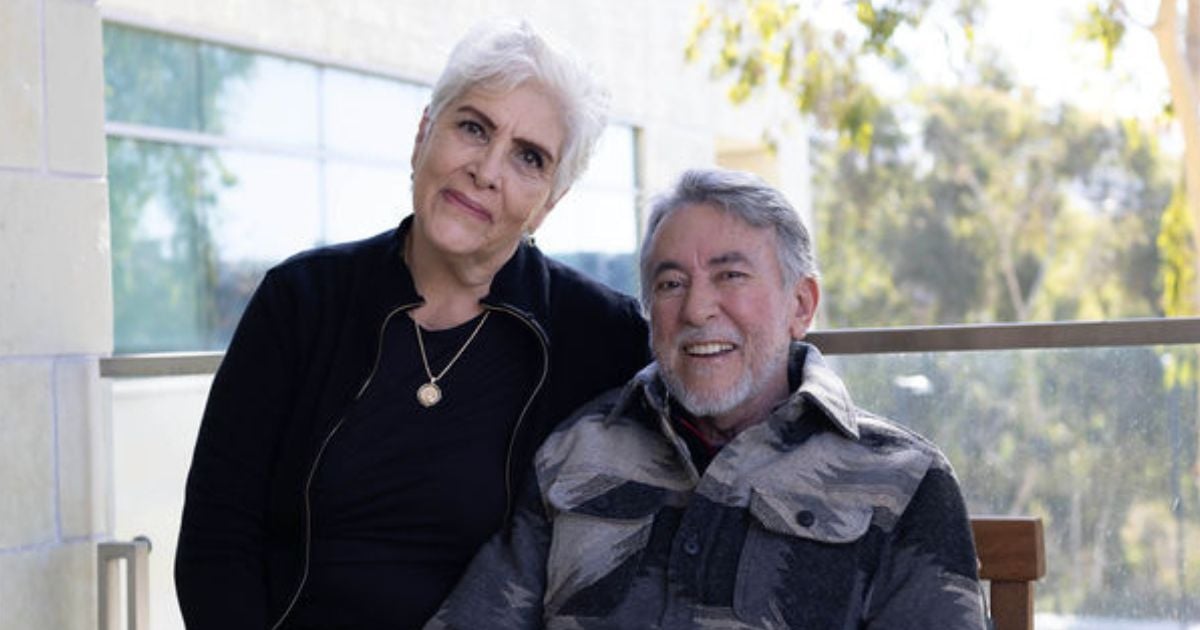Skin Cancer
UC San Diego Health oncologists and dermatologists offer comprehensive care for melanoma and other skin cancers.
Nationally Ranked Cancer Care
UC San Diego Health is repeatedly ranked among the top 50 in the nation for cancer care by U.S. News & World Report. We are also the only National Cancer Institute (NCI)-designated Comprehensive Cancer Center in San Diego County. This is the highest possible rating for a U.S. cancer center, and it means you’ll receive the best possible care and support. Studies show patient outcomes are better at NCI-designated cancer centers.
Types of Skin Cancer
More than 1 million cases of skin cancer are diagnosed in the United States each year. More than 95% of these are nonmelanoma skin cancer, associated with overexposure to the sun. Most nonmelanoma skin cancers and pre-cancers are treated by dermatologists. More advanced cancer or melanoma may require care from a multidisciplinary team that includes oncologists.
- Basal cell carcinoma: It accounts for 75% of all nonmelanoma skin cancer and very rarely spreads (metastasizes).
- Squamous cell carcinoma: It accounts for about 20% of all nonmelanoma skin cancer. It usually grows slowly, often develops in injured or diseased skin and may spread.
- Melanoma: This cancer starts in the pigment-producing skin cells (melanocytes). These cells may become abnormal, grow uncontrollably and aggressively invade surrounding tissues.
Rare Skin Cancers
Our oncologists also have familiarity and expertise in treating rare skin cancers. These cancers can be easily misdiagnosed and ineffectively treated by oncologists who do not specialize in skin cancer care.
If you have a skin cancer that is not responding to treatment or have been told you have a rare type of skin cancer, you may want to receive a second opinion on your diagnosis and treatment plan from a Comprehensive Cancer Center such as Moores Cancer Center. Our subspecialty expertise in all fields of oncology, including pathology, can help ensure your diagnosis is correct and treatment plan appropriate.
- Acral melanoma
- Adnexal carcinoma (such as porocarcinoma and eccrine carcinoma)
- Atypical fibroxanthoma
- Conjunctival melanoma
- Dermatofibrosarcoma protuberans (DFSP)
- Merkel cell carcinoma (MCC)
- Mucosal melanoma
- Sebaceous carcinoma
- Uveal melanoma, also known as ocular melanoma

Diagnosing Skin Cancer
The first step in diagnosing skin cancer is a thorough evaluation by your physician. You’ll also be asked to answer questions about your past sun exposure, history of moles and other skin growths, and any family history of melanoma or other cancer. While melanoma can sometimes be recognized solely by appearance, it’s typically diagnosed with a biopsy. Your doctor may also recommend other diagnostic tests to fully evaluate your condition, including:
-
Imaging and radiology
-
Dermatoscopy
-
Lymph node testing
-
Genetic counseling and testing
Comprehensive, Personalized Treatments for Skin Cancer and Melanoma
Feel confident you’ll receive a personalized, comprehensive care plan that fits your needs and supports you and your family throughout your journey. Your treatment may include one or a combination of the following approaches.
Targeted Therapy
These drugs target genetic mutations or proteins associated with your specific cancer. Your tumor will be sequenced so that your oncologist can select the drug that most effectively fights your particular disease. Treatment may include:
- BRAF inhibitors, including dabrafenib and trametinib
- Other matched activator pathways targeting cKit, RAS or NTRK
- Other treatments available through participation in a clinical trial
More About Precision Medicine at UC San Diego Health
Immunotherapy
Immunotherapy drugs harness your body's immune system to fight your cancer. Immunotherapy treatments may include:
- Vaccines or intratumoral injections, such as talimogene laherparepvec
- Cellular therapy, such as one derived from tumor-infiltrating lymphocytes (TIL) for metastatic melanoma. This is the first solid tumor therapy on the market approved by the Food and Drug Administration (FDA), and UC San Diego Health is the first hospital system in the region to offer it.
- Checkpoint inhibitors that target several regulatory pathways of the immune response, including Pembrolizumab or Nivolumab (targeting the PD1 pathway), Relatlimab (targeting the LAG3 pathway) or Ipilimumab (targeting the CTLA 4 pathway). These medications are used alone or in combination.
- Other treatments available through participation in a clinical trial
Because immunotherapy is so effective, your oncologist may recommend it as a first-line treatment before surgery or radiation therapy.
More About Immunotherapy at UC San Diego Health
Surgery
Your oncologist may recommend surgery if your cancer has spread or if it has not responded fully to targeted or immunotherapy. The type of surgery will depend on the extent and size of the cancerous tissue.
More About Cancer Surgery at UC San Diego Health
Mohs Micrographic Surgery
Mohs surgery is a precise technique used to treat certain skin cancers by removing cancerous tissue one layer at a time while preserving as much healthy skin as possible. Each layer is examined under a microscope until no cancer cells remain, ensuring complete removal. This procedure, performed under local anesthesia, can take several hours due to its detailed nature. Mohs surgery is often recommended for large or recurrent tumors, cancers in difficult-to-treat areas or when minimizing skin removal is important, such as on the face.
Radiation Therapy
Therapeutic radiation may be used in conjunction with other treatments to prevent cancer from coming back (recurrence). In some cases, radiation therapy may be used to shrink a tumor for pain or symptom relief.
Skin Cancer Doctors & Surgeons
At UC San Diego Health, your cancer care is led by a multidisciplinary team of doctors who specialize in your type of cancer. Highly specialized multidisciplinary care is a hallmark of top-tier academic medical centers such as UC San Diego Health. For patients like you, it means you receive the highest level of care. Find a skin cancer specialist.
Second Opinion Services
When you have a diagnosis as serious as cancer, you deserve a second opinion on your treatment options.
Clinical Trials
Advancing Cancer Care and Prevention
UC San Diego Health physicians are actively researching ways to improve cancer care. By joining a clinical trial, you may receive a new cancer treatment before it is available to the public. If your cancer has not responded to standard therapies, talk to your doctor about whether a clinical trial could be right for you.
Patient & Family Support Services
At UC San Diego Health, your care goes beyond treating disease. It also includes supporting you and your loved ones emotionally throughout your cancer journey. Most of our support services are free.
Support Melanoma Research
Make a financial gift to help further our research to improve the care and outcomes for people with melanoma.



